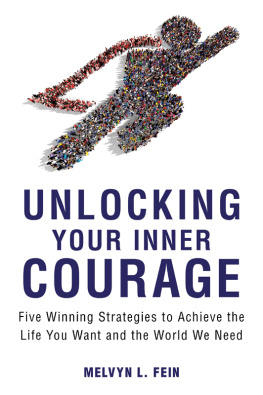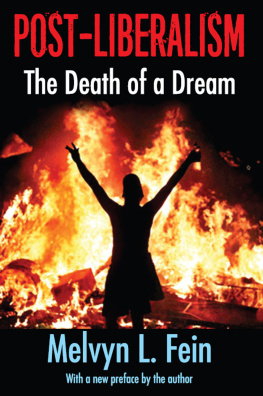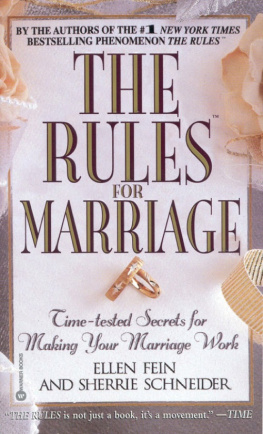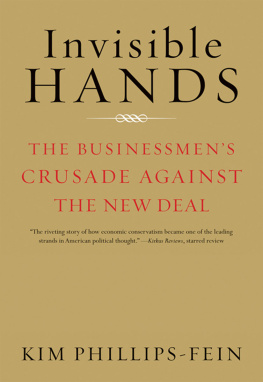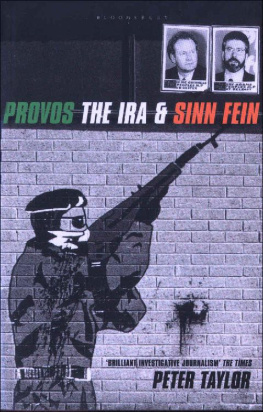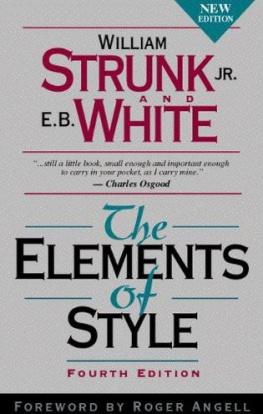A SEMI-REFORMED COWARD
I have always thought of myself as a coward. No matter how often people commended me on my bravery, I was excruciatingly aware of my many deep-seated fears. Although my bold exterior sometimes fooled outsiders, I knew the truth. That frightened little boy, the one who sat in the corner of the bedroom on East Eighth Street too scared to go outside, was still there. That lack of courage he now tried to conceal was part of who he wasand would never go away.
Hadn't my younger sister learned to swim before I did? Hadn't she also ridden a bicycle first? I was simply too afraid of drowning or skinning a knee to take a chance. Wasn't I also scared of walking down to the end of the block because there was a bully there who might jump out to attack me? Even though he had polio and limped around on a heavy metal brace, I dreaded his assaults. It didn't matter that I could run faster. What if he caught me unawares?
I was even afraid at school. Despite getting good grades and routine praise, there was always the possibility of not knowing the answer to a question. The mere thought of standing up in class and fumbling for a response was mortifying. Then, as I grew older and my peers began dating, I worried about rejection. Because I was small, what girl would find me attractive? I was not an athlete nor especially handsome, so perhaps girls would laugh behind my back.
Then too there was the question of becoming an adult. What skills did I possess that could be turned to earning a living? Yes, I got good grades, but who would hire me merely because I got A's in history? Anything I knew was totally impractical. I could not fix a car; I didn't even know how to drive one. If the plumbing broke in my apartment, I would be at a loss over what to do. Nor could I wield a hammer and saw as well as my father and grandfather could. They were men who knew how to be men, whereas I was destined to be an eternal child. Condemned to an inferiority that I could not escape, the best I might eventually manage was a pale imitation of manhood.
Nor would this change. I was not physically strong. I lacked gravitas. And worst of all, I did not understand how the world worked. Why others behaved as they did remained an exasperating mystery. Just figuring out how sex worked left me red-faced and dumbstruck among friends who got the joke. How then could I function as the businessman that my father wanted me to be? No one, certainly no self-respecting adult man, would take orders from me. No executive would ever be foolish enough to place me in a responsible position. I clearly did not have the right stuff. Something was missing. Something others had in abundance, which I lacked. While I was not sure what this was, I was convinced that I was biologically incapable of acquiring it.
In short, I was a congenital coward. I was afraid of a world that others met head-on. Instead of taking risks, I sought ways to avoid them. Although I could pretend that I was adequate by keeping my mouth shut, if anyone peered into my soul they would find a Nervous Nellie. While I did not literally tremble as noticeably as Don Knotts, inside I experienced something similar. Nor would my trepidation go away. It was deeply entrenched in who I was and hence there was nothing I could do about it.
In fact, experiences that might have convinced another person he had at least a modicum of courage made no impression on me. For example, while in college, I hitchhiked alone around Europe for an entire summer. I did this, however, because the friend who was to accompany me had backed out at the last minute. Then, once on the road, upon reaching a strange town, I did not know where to go. Most of the time I stumbled around until I found a youth hostel or visitors bureau. Only a single time, in Denmark, did I find myself stranded in the middle of farm country and forced to sleep in a field. I survived, but palpably with less aplomb than more intrepid souls. Sadly, each and every time I encountered the unexpected, my heart leaped to my mouth.
Not even my military experience changed my mind. During the heart of the Vietnam War, I was forced to drop out of a graduate program in philosophy and join the National Guard. Though I was mortified by discovering that I detested a subject I thought I would love, I was even more mortified by the prospect of becoming a soldier. My father always warned me that the army would tear me down. Instead of making a man of me, I would be revealed as the child I was. It was therefore with extreme anxiety that I took the PT tests one was required to pass during Basic Training. A failure would mean being recycled and subjected to rigorous punishments. This, I was certain, would be my lot.
When the fateful day came, despite my apprehension, I tried my best. Although I was sure I would fail, the results turned out better than I expected. Out of the fifty men in my squad, virtually every one of which was bigger than me, I came out third best. You could have knocked me over with a feather. How could a weakling like me have done so well? I knew that almost every one of my colleagues was stronger, so what made the difference? It turned out that I was fast and flexible and therefore could speed through exercises like squat thrusts. Nevertheless I was unimpressed. Although I passed, this no longer seemed a significant accomplishment. While I might be quick, quickness was not as important as strength.
Nor did going through the confidence course modify my self-image. This torment was supposed to prepare recruits for the rigors of combat. It entailed crawling under barbed wire in the dark as live ammunition was fired overhead. Many of these rounds were tracers so that it was possible to see them flying by. At first, my squad lined up alongside the course, awaiting nightfall. From here we could see the berm where the bullets landed. The upshot was that many of my peers began to wet their trousers in anticipation of what was to come. I did not. Then, while edging my way under the wire, an explosion went off no more than a foot from me. Suddenly my arm was wet. Was this blood? I could not tell because it was too dark. What then should I do? There was, in fact, no choice. With no one able to come to the rescue, I simply had to keep moving forward. Afterward, I discovered that the field was studded with pots rigged to simulate battlefield explosions. I had been doused because it had rained the previous night and the pots were still filled with water. In any event, I was struck by my fear. Although I got through in one piece, my underlying terrors had once more risen to the surface.
After I left active service, I got a job as a counselor with the New York City Methadone Maintenance Program. Unable to discover any other job for which I was qualified, I was (in my mind) at least morally superior to the addicts with whom I would deal. Many of them, of course, had long criminal records. In fact, a large number carried knives and guns, and/or secreted razor blades in their shoes. I, for the most part, did not want to know. My goal was to stay as far away from the violence as I could. Then one day I was asked to accompany our clients on an outing. They were to play a softball game against another clinic.
All went well for the first few innings, but then a fight broke out between one of our regulars and one of theirs. The two men squared off, brandishing knives pointed directly toward each other. Now the question was, what was I supposed to do? There was no other counselor from my side around; hence it was up to me. I therefore approached the combatants. I did this by coming up from the side and slightly behind. Next, from several feet away, I asked our client, What are you doing? Surely you do not want to hurt or be hurt. At this, he turned marginally in my direction. Meanwhile, a counselor for the other clinic followed the same procedure with his client. The more I talked, the more my guy turned toward me, while the other guy turned toward his counselor. Soon their knives were pointed not at each other but at us intermediaries. Eventually the combatants were standing with their backs to each other. It was as if my colleague and I were bullfighters who had distracted the fighters from their initial target. Now, no longer face-to-face, they did not have to prove their manhood by engaging in combat. At this point, it was possible to talk them into giving up their weapons.

